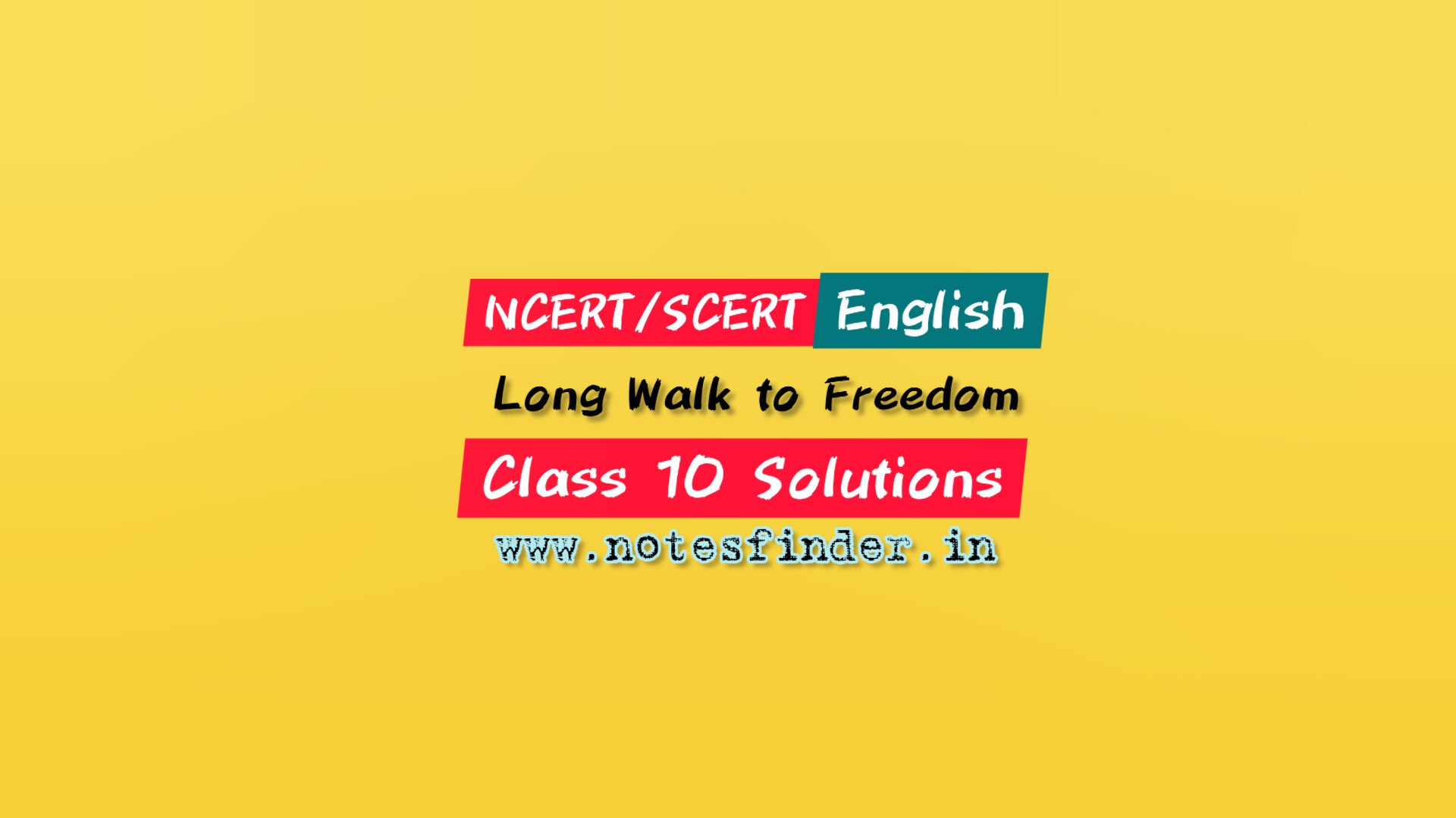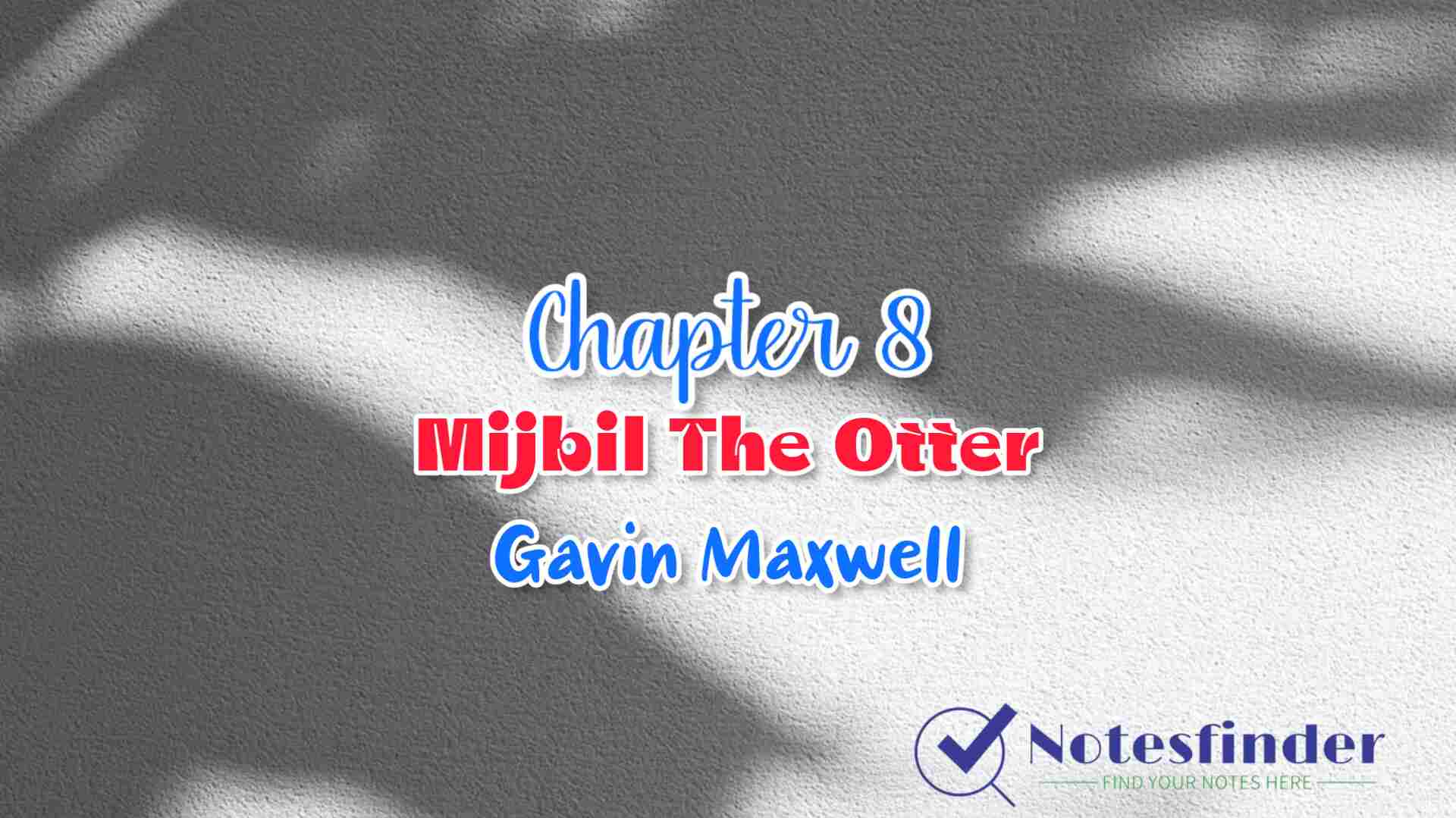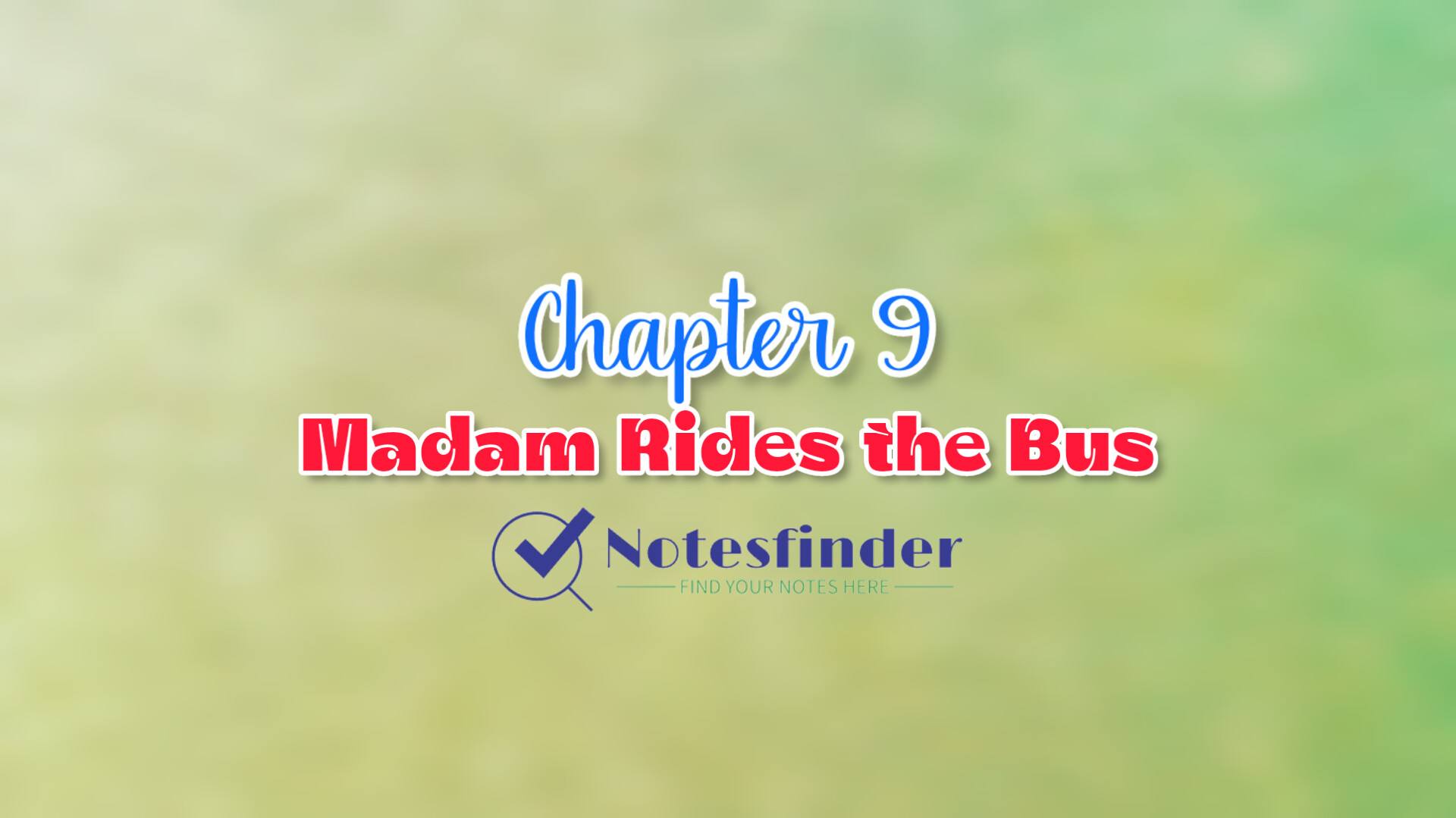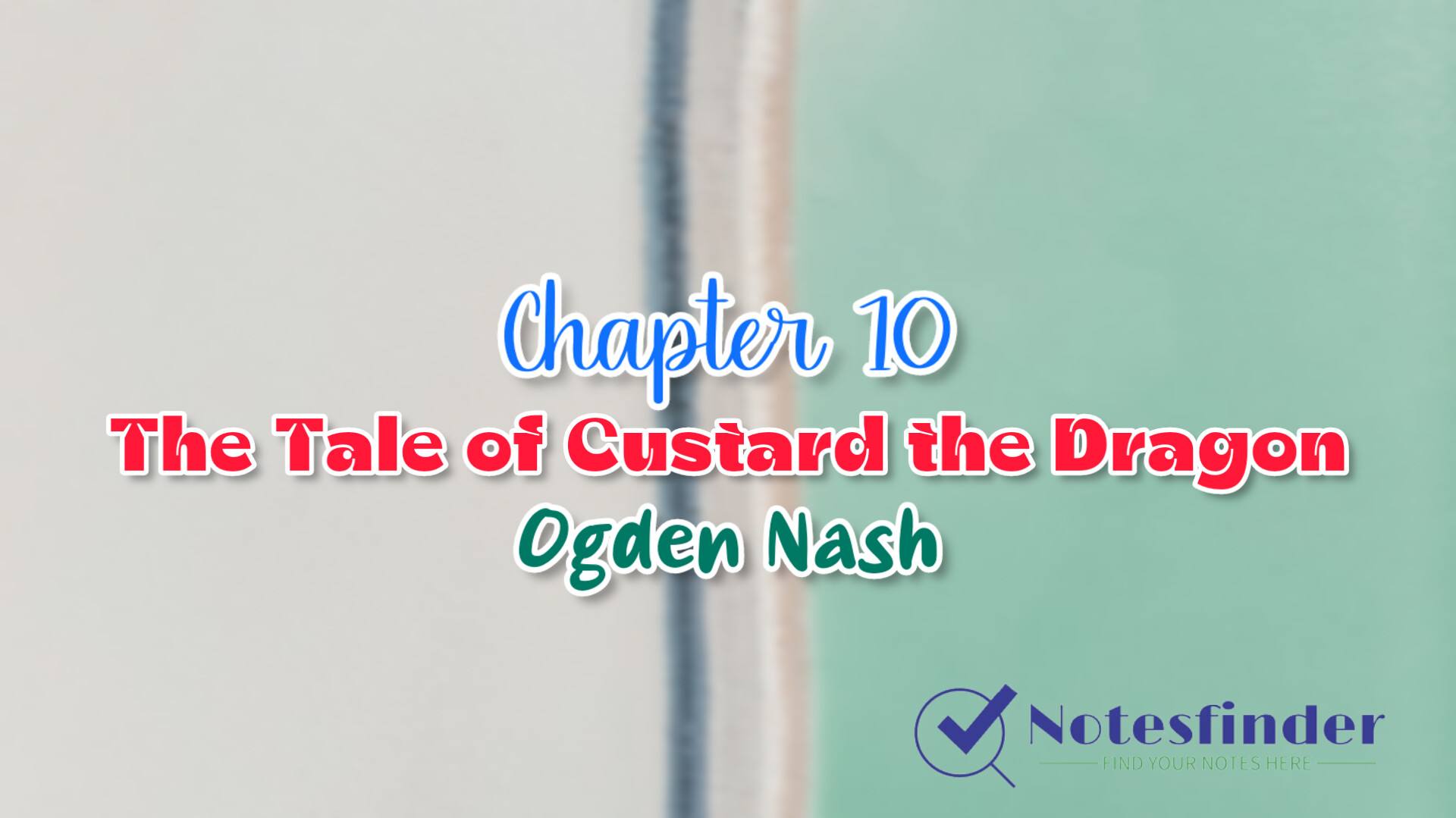
NCERT Solutions for Class 10 English First Flight Chapter 2 Nelson Mandela : Long Walk to Freedom
Activity (Page 17)
In Column A are some expressions you will find in the text. Make a guess and match each expression with an appropriate meaning from Column B.
Answer:
| Column A | Column B |
| (i) A rainbow gathering of different colours and nations | – A beautiful coming together of various peoples, like the colours in a rainbow |
| (ii) The seat of white supremacy | – The centre of racial superiority |
| (iii) Be overwhelmed with a sense of history | – Feel deeply emotional, remembering and understanding all the past events that have led up to the moment |
| (iv) Resilience that defies the imagination | – A great ability (almost unimaginable) to remain unchanged by suffering (not losing hope, goodness or courage) |
| (v) A glimmer of humanity | – A sign of human feeling (goodness, kindness, pity, justice, etc.) |
| (vi) A twilight existence | – A half-secret life, like a life lived in the fading light between sunset and darkness |
Oral Comprehension Check (Page 18-19)
1. Where did the ceremonies take place ? Can you name any public buildings in India that are made of sandstones?
Answer:The ceremonies took place in the campus of the Union Building of Pretoria, which were attended by dignitaries and leaders of several nations. In India Rashtrapati Bhavan and Red Fort are two governmental buildings made of sandstones.
2. Can you say how 10th May is an ‘autumn day’ in South Africa?
Answer: 10th May is an ‘autumn day’ in South Africa because the first democratic, non-racial government was formed on this auspicious day in presence of many world leaders.
3. At the beginning of his speech, Mandela mentions “an extraordinary human disaster”. What does he mean by this? What is the “glorious human achievement” he speaks of at the end?
Answer: By ‘an extraordinary human disaster’ Mandela means to state the practice of Apartheid, the discrimination of people based on colour in South Africa. Under this practice Black people suffered the most. They were not allowed to exercise their right to freedom.
A black person became the President of a country where the blacks were not even considered human beings and were treated badly. It is the “glorious human achievement ” that he speaks of at the end.
4. What does Mandela thank the international leaders for ?
Answer: Mandela felt very privileged to welcome the international leaders at the swearing – in ceremony because not too long ago, the South Africans were considered outlaws. He thus thanked all of them for having come to witness the historical ceremony. This was a gesture of international recognition to a newly formed sovereign democratic nation and it could also be considered as a common victory for justice, peace and human dignity.
5. What ideals does Nelson Mandela set for the future of South Africa?
Answer: Nelson Mandela set the ideals of liberating people from bondage of poverty, deprivation and suffering and other deprivations. He also set the ideal for a society where there would be no discrimination based on gender, race or any kind of prejudice.
Oral Comprehension Check (Page 21)
1. What did the military generals do? How has their attitude changed and why?
Answer:The highest military generals of South African defence forces and police saluted and pledged their loyalty to Nelson Mandela.
Their attitude towards Blacks has changed due to the struggles and sacrifices that were put in by many heroes of South Africa. These struggles not only ensured the freedom of a democratic nation struggling with Apartheid but it also brought a massive change in the mindsets of many people. Mandela believed that love is something that could be taught and human beings are naturally inclined towards love more, rather than hate.
2. Why were two national anthems sung?
Answer: On the auspicious occasion of the inauguration ceremony, two national anthems were sung – the Whites sang ‘Nkosi Sikelel –iAfrika’ and the Blacks sang ‘Die Stem’, the old anthem of the Republic. Singing of both the anthems symbolized the equality of rights between Whites and Blacks.
3. How does Mandela describe the systems of government in his country –(i) in the first decade, and (ii) in the final decade, of the twentieth century?
Answer: (i) Mandela describes that in the first decade of the twentieth century, the white-skinned people of South Africa patched up their differences and erected a system of racial domination against the dark-skinned peoples of their own land. This created the basis of one of the harshest, most inhumane, societies the world has ever seen or known.
(ii) He says tha in the final decade of the twentieth century, the previous system of government had been overturned forever and replaced by one that recognised the rights and freedoms of all peoples, regardless of the colour of their skin.
4. What does courage mean to Mandela?
Answer: According to Mandela, courage was not the absence of fear, but the triumph over it. A brave man is not one who does not feel afraid, but one who conquers that fear.
5. Which does he think is natural, to love or to hate?
Answer: Mandela thinks that love comes more naturally to the human heart rather than hate.
Oral Comprehension Check (Page 24)
1. What “twin obligations” does Mandela mention?
Answer: Mandela mentions that every man has twin obligations. The first is to his family, parents, wife and children; the second obligation is to his people, his community and his country.
2. What did being free mean to Mandela as a boy, and as a student ? How does he contrast these “transitory freedoms” with “the basic and honourable freedoms”?
Answer: Like any other kid, for Mandela freedom meant to make merry and enjoy the blissful life. Once one becomes an adult, antics of childhood looks like transitory because most of the childish activities are wasteful from an adult’s perspective. As an adult one has to earn a livelihood to bring the bacon home. It’s only then when one gets an honourable existence in the family and in the society.
3. Does Mandela think the oppressor is free? Why/why not?
Answer: Mandela does not think that the oppressor is free because according to him an oppressor is a victim of hatred who is imprisoned by prejudice and narrow-mindedness. He realises that both the oppressor and the oppressed are robbed of their humanity and peace.
Thinking about the Text (Page 24)
1. Why did such a large number of international leaders attend the inauguration ? What did it signify the triumph of?
Answer: A large number of international leaders attended the inauguration as a gesture of solidarity with the idea of end of apartheid. It signified the victory of good over evil and triumph of a tolerant society without prejudice of caste, colour or creed.
2. What does Mandela mean when he says he is “simply the sum of all those African patriots”, who had gone before him ?
Answer: By saying that he is “simply the sum of all those African patriots” Mandela wants to pay his tribute to all the people who have sacrificed their lives for the sake of freedom. He says that he is grateful to those who had gone before him because those heroes of past had paved the path of co-operation and unity for him. Therefore, he felt that when he came to power, he would bring equality for his people with their support.
3. Would you agree that the “depths of oppression” create “heights of character”? How does Mandela illustrate this? Can you add your own examples to this argument ?
Answer: I agree with the statement that depths of oppression create heights of character.
Nelson Mandela illustrates this by giving examples of great heroes of South Africa like Oliver Tambo, Walter Sisulu and others who were inspired to sacrifice their lives in the long freedom struggle.
India is full of such examples, during our freedom struggle there was a galaxy of leaders of great characters and the oppression of British rule created and encouraged people of noble characters like Mahatma Gandhi, Lala Lajpat Rai, Netaji Subhash Chandra Bose, Chandra Shekhar Ajad, Sardar Bhagat Singh and many more. If we compare them with the quality of political leaders India is having today, then Nelson Mandela seems to be absolutely right great leaders are created in the crucible of oppression and suffering.
4. How did Mandela’s understanding of freedom change with age and experience?
Answer: With age and experience, Mandela understood the real meaning of freedom. As a young boy, he thought that he was born free and believed that as long as he obeyed his father and abided by the customs of his tribe, he was free in every possible manner. As he grew older, freedom to raise a family and freedom to earn livelihood started dominating his thoughts. Gradually he realised that he was selfish during his boyhood. He slowly understood that it was not just his freedom that was being curtailed, but the freedom of all blacks. Mandela understood that his people were being deprived and discriminated and this led him to develop a hunger for the freedom of his people.
5. How did Mandela’s ‘hunger for freedom’ change his life?
Answer: Mandela realised in his youth that it was not just his freedom that was being curtailed, but the freedom of all the Blacks. This changed him from the fearfulman to a fearless rebel. He sacrificed the comforts of a settled family life to fight for a greater cause. He joined the African National Congress and this changed him from a frightened young man into a bold one who fought against racial prejudice.
Thinking about Language (Page 24,25,26)
I. There are nouns in the text (formation, government) which are formed from the corresponding verbs (form, govern) by suffixing – (at)ion or ment. There may be change in the spelling of some verb – noun pairs ; such as rebel, rebellion; constitute, constitution.
1. Make a list of such pairs of nouns and verbs in the text.
| Nouns | Verbs |
| rebellion | rebel |
| constitution | constitute |
| formation | form |
| government | govern |
| obligation | oblige |
| transformation | transform |
| discrimination | discriminate |
| deprivation | deprive |
| demonstration | demonstrate |
| oppression | oppress |
| imagination | imagine |
2. Read the paragraph below. Fill in the blanks with the noun forms of the verbs in brackets.
Martin Luther King’s _______________ (contribute) to our history as an outstanding leader began when he came to the ______________ (assist) of Rosa Parks, a seamstress who refused to give up her seat on a bus to a white passenger. In those days American Blacks were confined to positions of second class citizenship by restrictive laws and customs. To break these laws would mean _______________ (subjugate) and ________________ (humiliate) by the police and the legal system. Beatings, _________________ (imprison) and sometimes death awaited those who defied the System. Martin Luther King’s tactics of protest involved non-violent ___________________ (resist) to racial injustice.
Answer:
Martin Luther King’s contribution to our history as an outstanding leader began when he came to the assistance of Rosa Parks, a seamstress who refused to give up her seat on a bus to a white passenger. In those days American Blacks were confined to positions of second class citizenship by restrictive laws and customs. To break these laws would mean subjugation and humiliation by the police and the legal system. Beatings, imprisonment and sometimes death awaited those who defied the System. Martin Luther King’s tactics of protest involved non-violent resistance to racial injustice.
II. Using the Definite Article with Names
You know that the definite article ‘the’ is not normally used before proper nouns. Nor do proper nouns usually occur in the plural. (We do not say: *The Nelson Mandela, or *Nelson Mandelas.) But now look at this sentence from the text:
… the decades of oppression and brutality … produced the Oliver Tambos, the Walter Sisulus, … of our time.
Used in this way with the and/or in the plural, a proper noun carries a special meaning. For example, what do you think the names above mean? Choose the right answer.
(a) for example Oliver Tambo, Walter Sisulu, … (b) many other men like Oliver Tambo, Walter Sisulu …/many men of their type or kind, whose names may not be as well known.
Did you choose option (b)? Then you have the right answer!
Here are some more examples of ‘the’ used with proper names. Try to say what these sentences mean. (You may consult a dictionary if you wish. Look at the entry for ‘the’.)
1. Mr Singh regularly invites the Amitabh Bachchans and the Shah Rukh Khans to his parties.
2. Many people think that Madhuri Dixit is the Madhubala of our times.
3. History is not only the story of the Alexanders, the Napoleons and the Hitlers, but of ordinary people as well.
Answer:
1. This implies that Mr. Singh regularly invites prominent personalities of caliber such as Mr. Amitabh Bachchan and Mr. Shah Rukh Khan to his parties.
2. This implies that in the current generation, Madhuri Dixit is compared to the great actress, Madhubala.
3. This means history is not only the story of kings,rulers or leaders such as Alexander, Napoleon or Hitler, but also of other ordinary people.
III. Idiomatic Expressions
Match the italicised phrases in Column A with the phrase nearest in meaning in Column B. (Hint: First look for the sentence in the text in which the phrase in Column A occurs.)
Answer:
| A | B |
| 1. I was not unmindful of the fact | (i) had not forgotten; was aware of the fact |
| 2. when my comrades and I were pushed to our limits | (iii) felt that we could not endure the suffering any longer |
| 3. to reassure me and keep me going | (ii) help me continue to live in hope in this very difficult situation |
| 4. the basic and honourable freedoms of…earning my keep,… | (i) earning enough money to live on |
Speaking
In groups, discuss the issues suggested in the box below. Then prepare a speech of about two minutes on the following topic. (First make notes for your speech in writing.)
True liberty is freedom from poverty, deprivation and all forms of discrimination.
• causes of poverty and means of overcoming it
• discrimination based on gender, religion, class, etc.
• constitutionally guaranteed human rights
Writing (Page 26-28)
I: Looking at Contrasts
Nelson Mandela’s writing is marked by balance: many sentences have two parts in balance.
Use the following phrases to complete the sentences given below.
(i) they can be taught to love.(iv) but he who conquers that fear.(ii) I was born free.(v) to create such heights of character.(iii) but the triumph over it.
1. It requires such depths of oppression _________________________________________
2. Courage was not the absence of fear __________________________________________
3. The brave man is not he who does not feel afraid __________________________________
4. If people can learn to hate _________________________________________________
5. I was not born with a hunger to be free. ______________________________________
Answer:
1. It requires such depths of oppression (v) to create such heights of character.
2. Courage was not the absence of fear (iii) but the triumph over it.
3. The brave man is not he who does not feel afraid (iv) but he who conquers that fear.
4. If people can learn to hate (i) they can be taught to love.
5. I was not born with a hunger to be free. (ii) I was born free.
II. This text repeatedly contrasts the past with the present or the future. We can use coordinated clauses to contrast two views, for emphasis or effect. Given below are sentences carrying one part of the contrast. Find in the text the second part of the contrast, and complete each item. Identify the words which signal the contrast. This has been done for you in the first item.
1. For decades the Union Buildings had been the seat of white supremacy, and now …
2. Only moments before, the highest generals of the South African defence force and police … saluted me and pledged their loyalty. … not so many years before they would not have saluted _______________
3. Although that day neither group knew the lyrics of the anthem …, they would soon ______________
4. My country is rich in the minerals and gems that lie beneath its soil, _______________________
5. The Air Show was not only a display of pinpoint precision and military force, but _______________
6. It was this desire for the freedom of my people … that transformed _______________ into a bold one, that drove _______________ to become a criminal, that turned ________________into a man without a home.
Answer:
1. For decades the Union Buildings had been the seat of white supremacy, and now it was the site of a rainbow gathering of different colours and nations for the installation of South Africa’s first democratic, non-racial government.
2. Only moments before, the highest generals of the South African defence force and police … saluted me and pledged their loyalty. … not so many years before they would not have saluted but arrested me.
3. Although that day neither group knew the lyrics of the anthem …, they would soon know the words by heart.
4. My country is rich in the minerals and gems that lie beneath its soil, but I have always known that its greatest wealth is its people, finer and truer than the purest diamonds.
5. The Air Show was not only a display of pinpoint precision and military force, but a demonstration of the military’s loyalty to democracy, to a new government that had been freely and fairly elected.
6. It was this desire for the freedom of my people … that transformed a frightened young man into a bold one, that drove a law-abiding attorney to become a criminal, that turned a family-loving husband into a man without a home.
III: Expressing Your Opinion
Do you think there is colour prejudice in our own country? Discuss this with your friend and write a paragraph of about 100 to 150 words about this. You have the option of making your paragraph a humorous one. (Read the short verse given below.)
When you were born you were pink
When you grew up you became white
When you are in the sun you are red
When you are sick you are yellow
When you are angry you are purple
When you are shocked you are grey
And you have the cheek to call me ‘coloured’.
Answer: Do it yourself.



